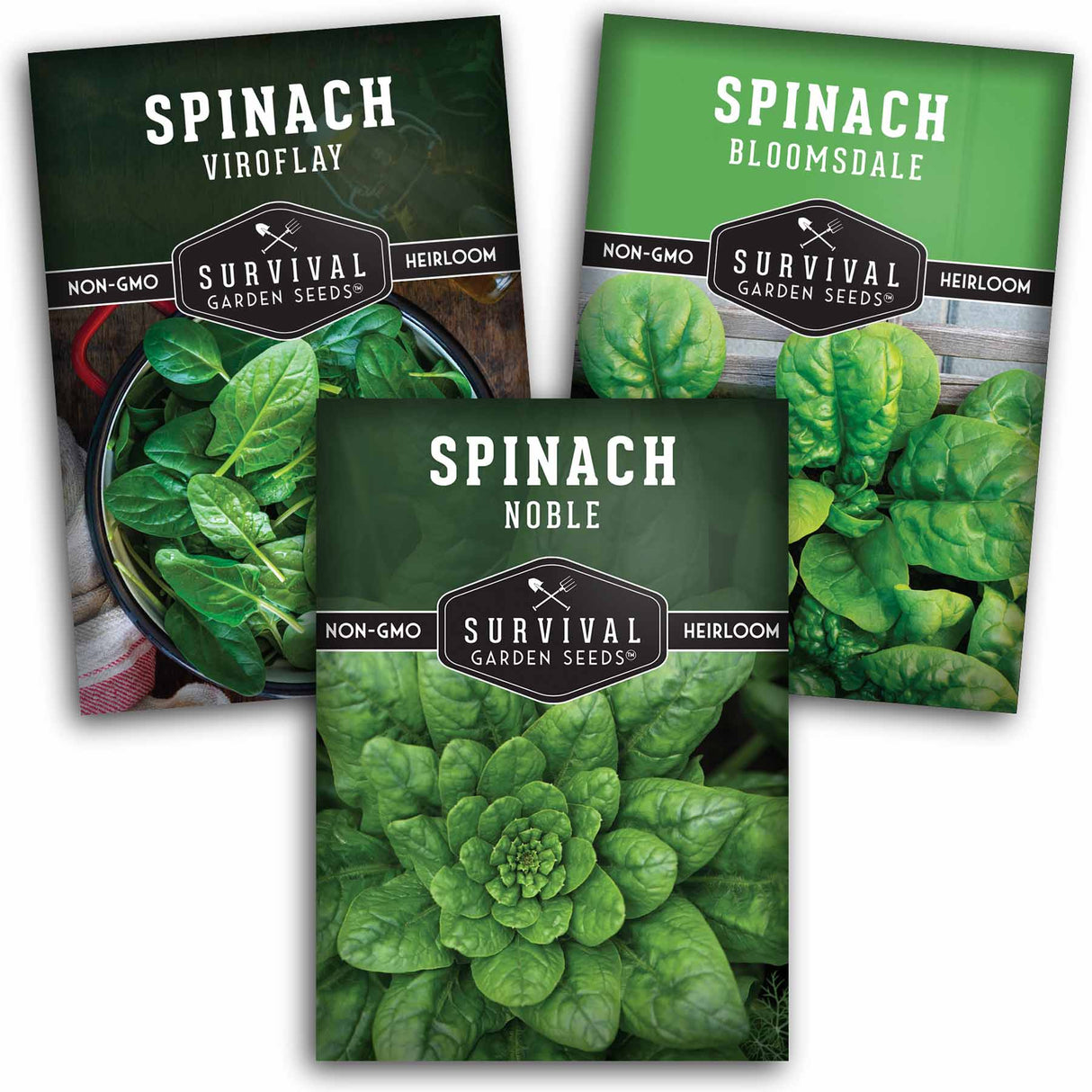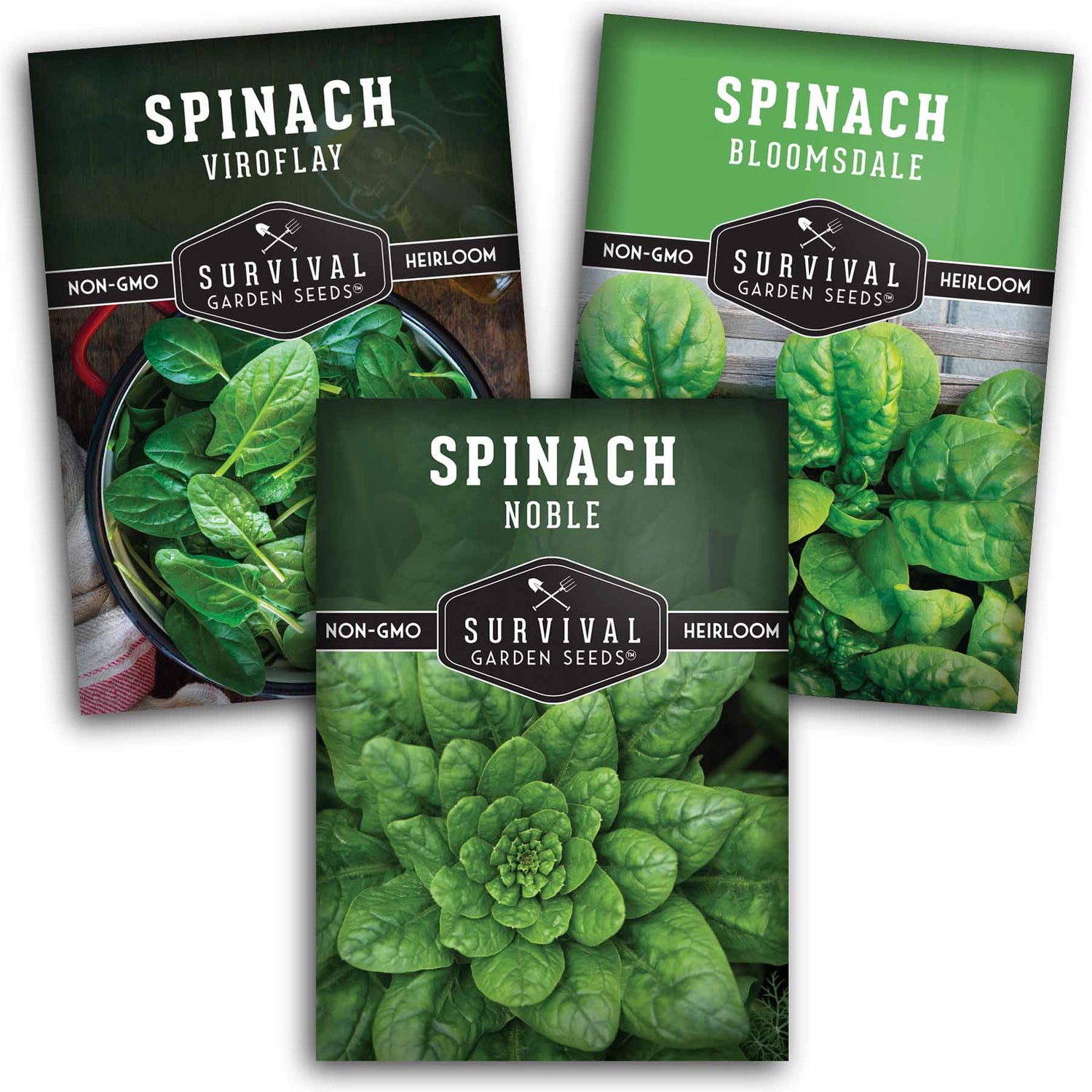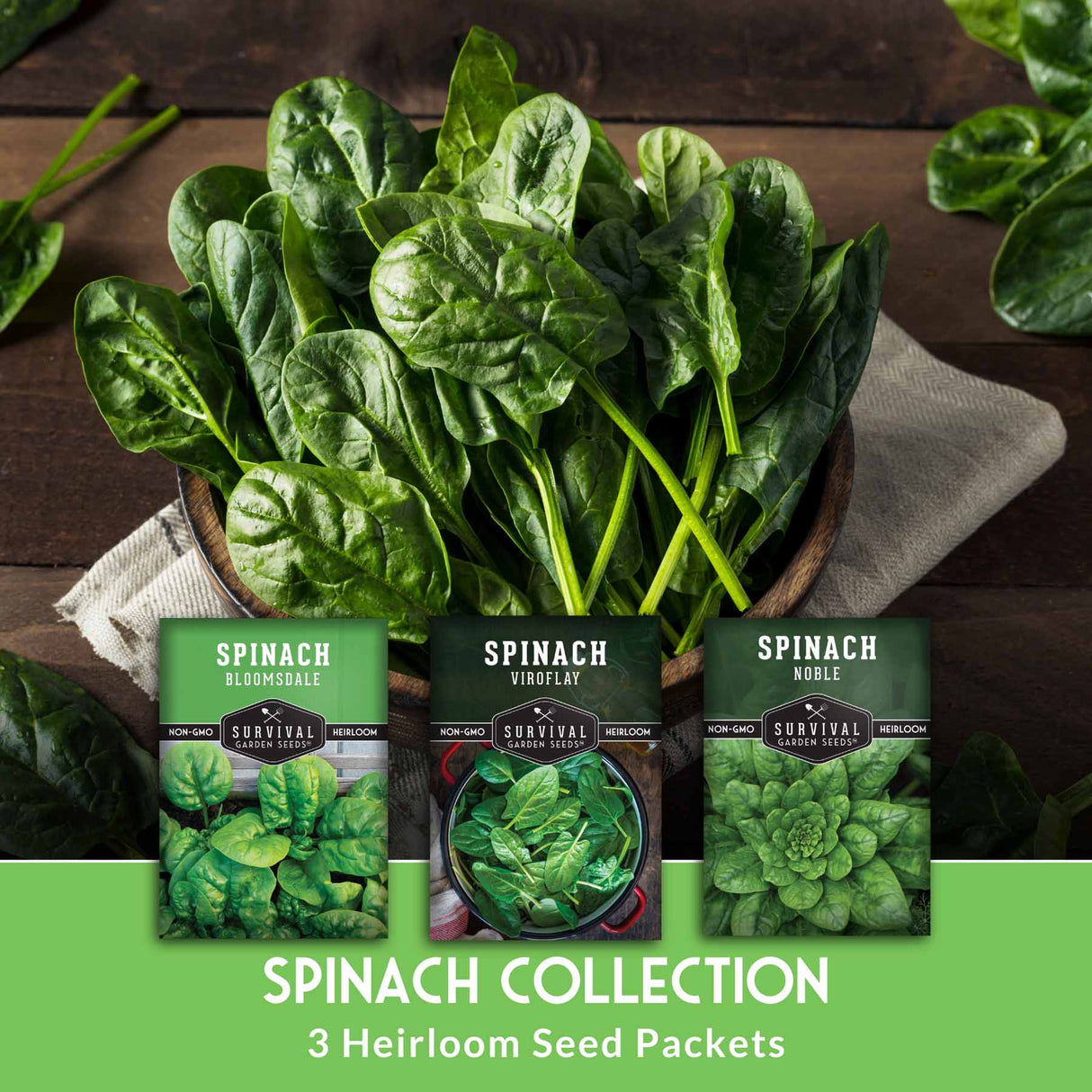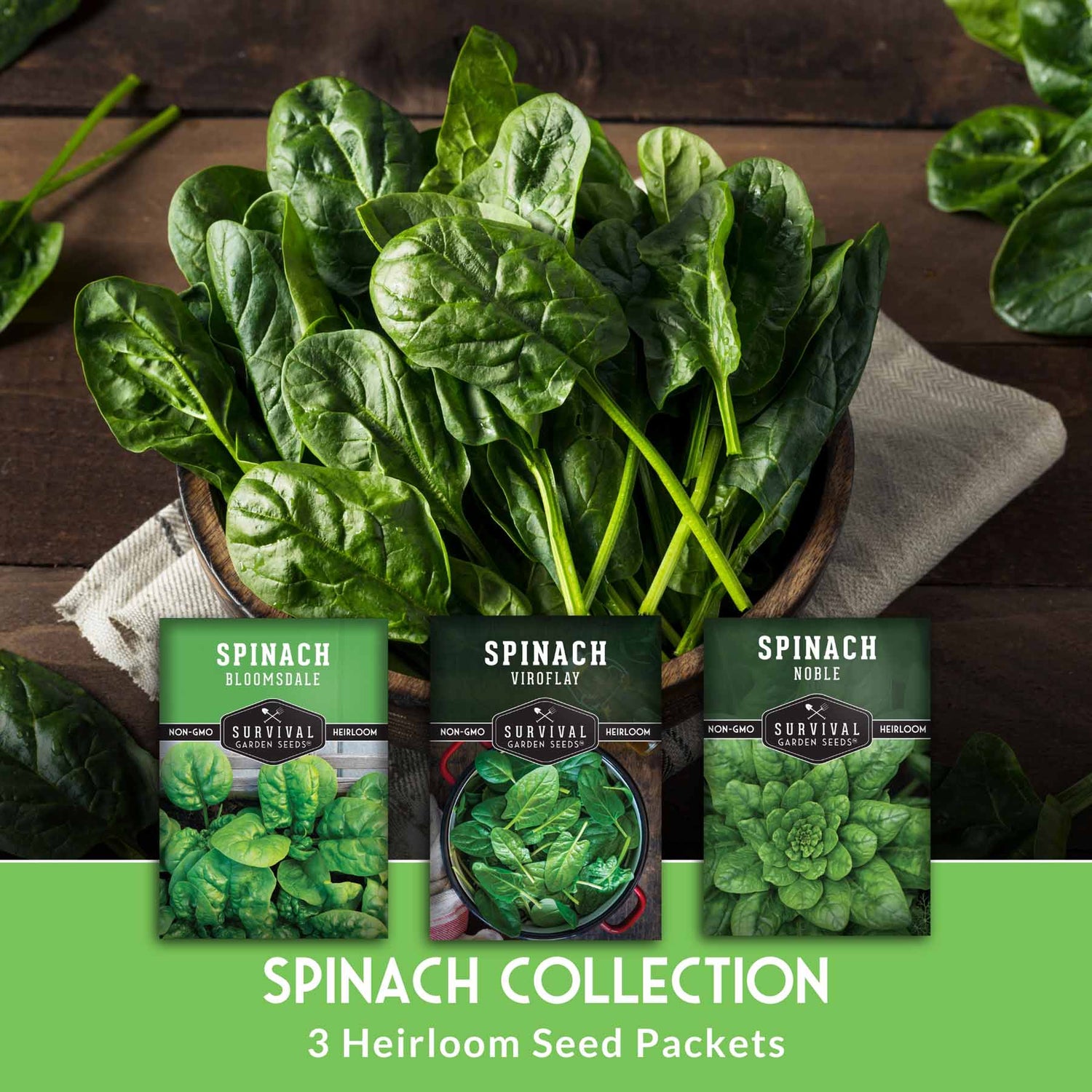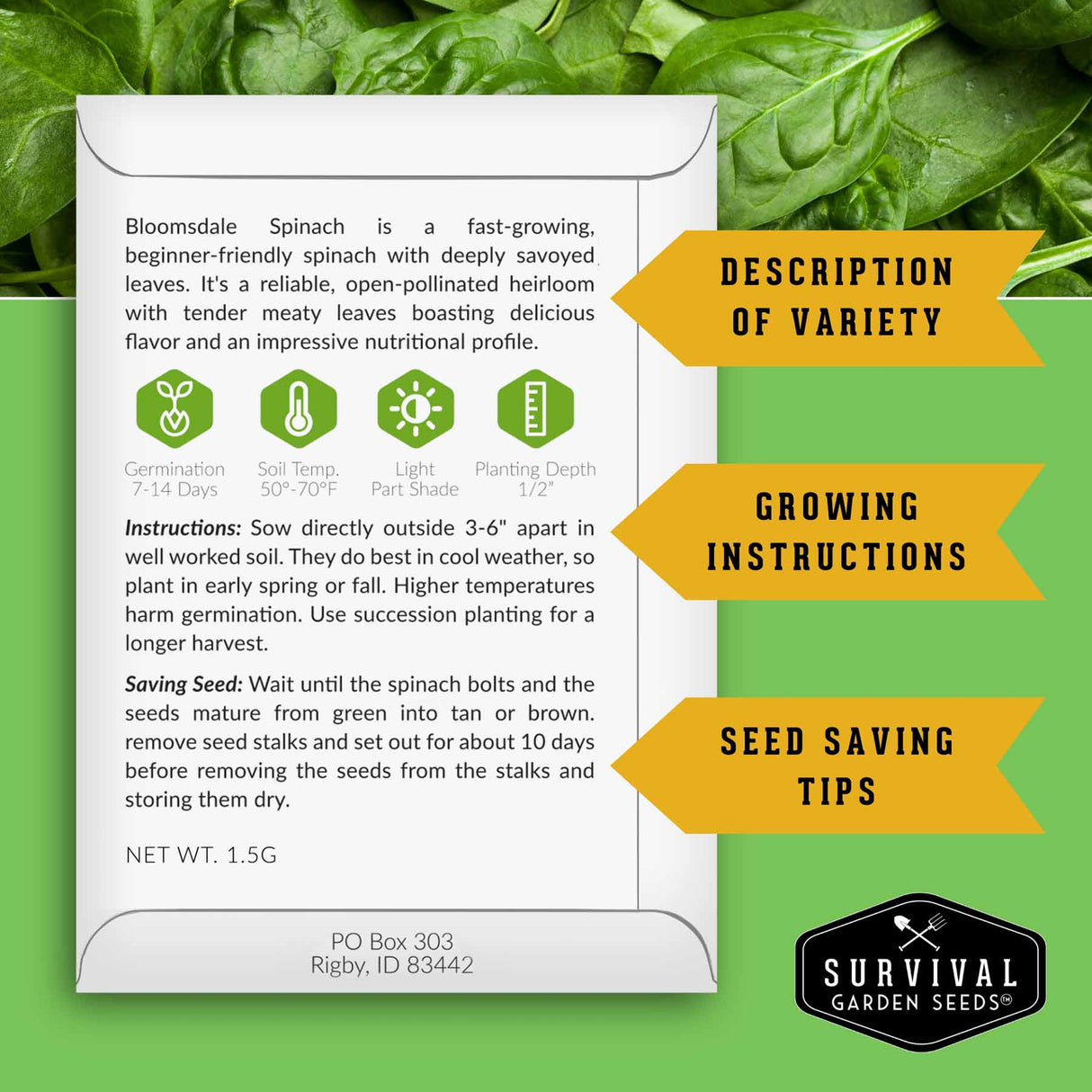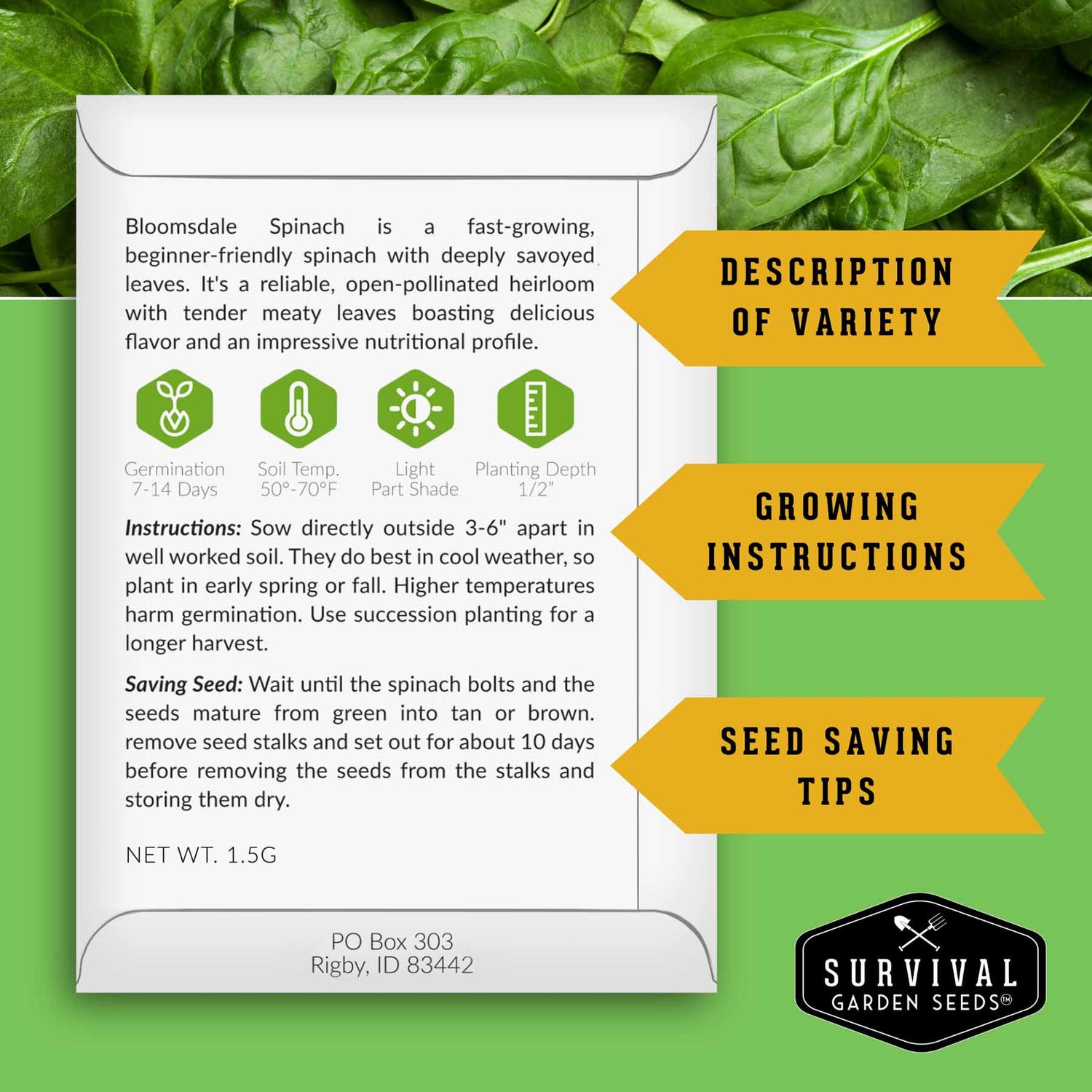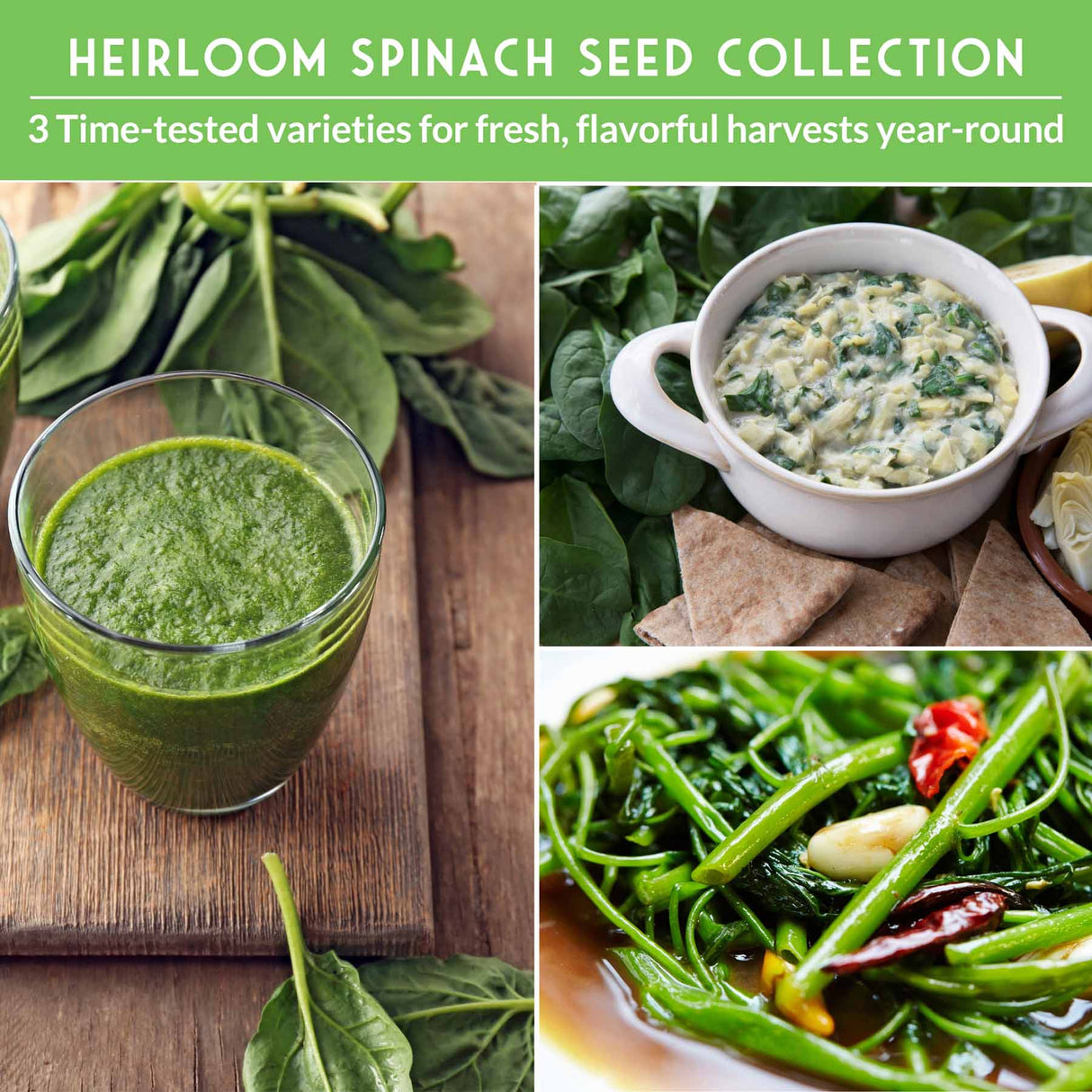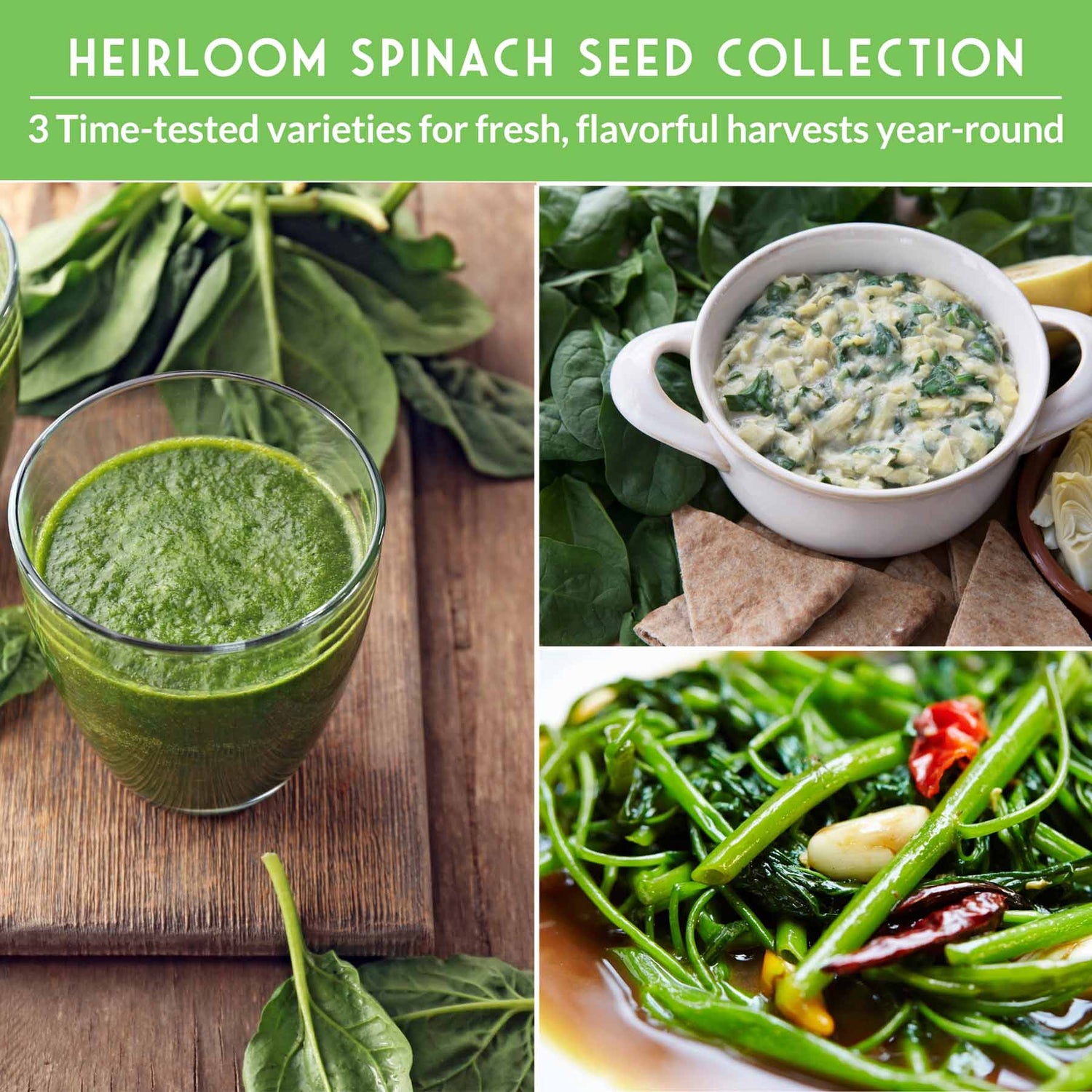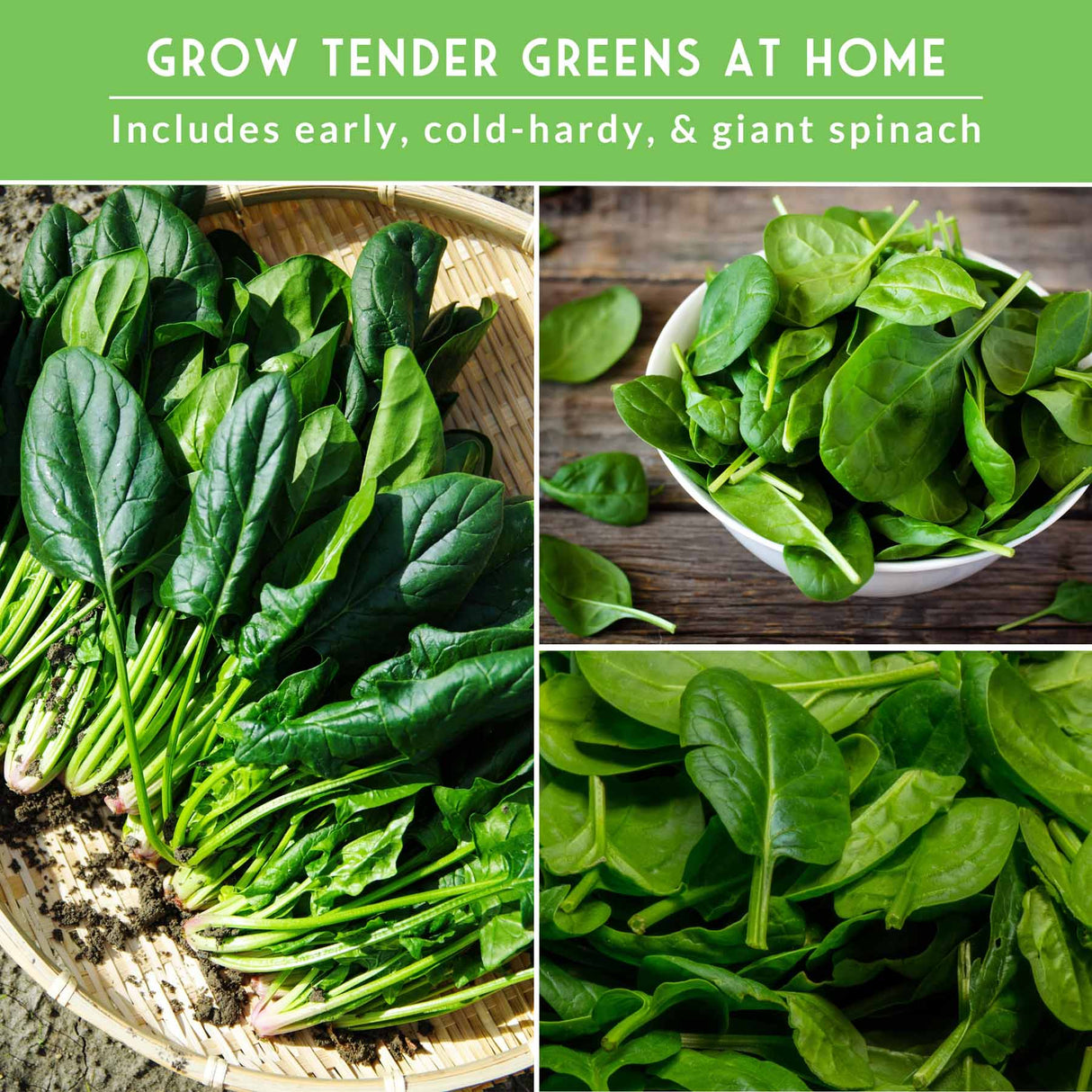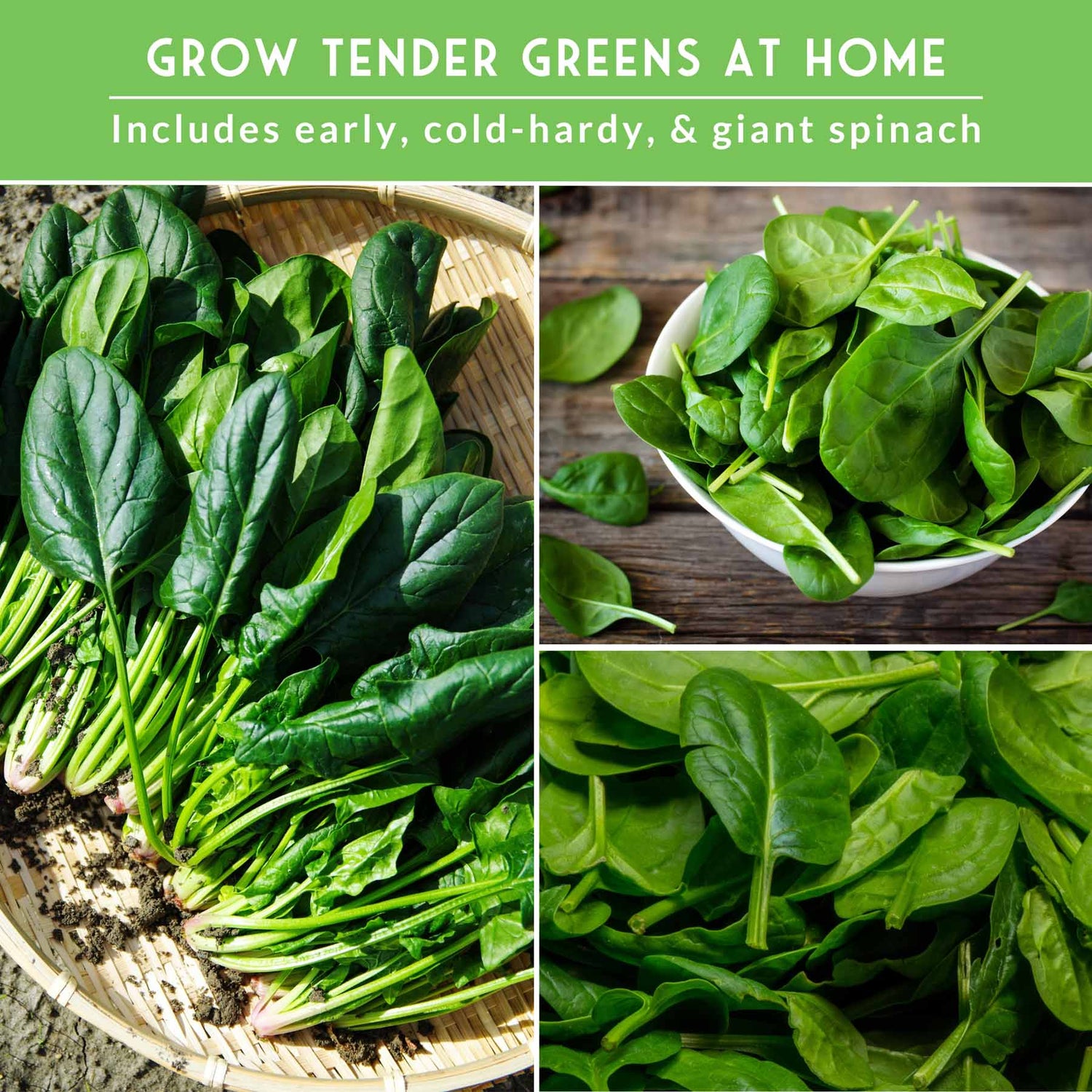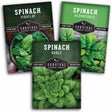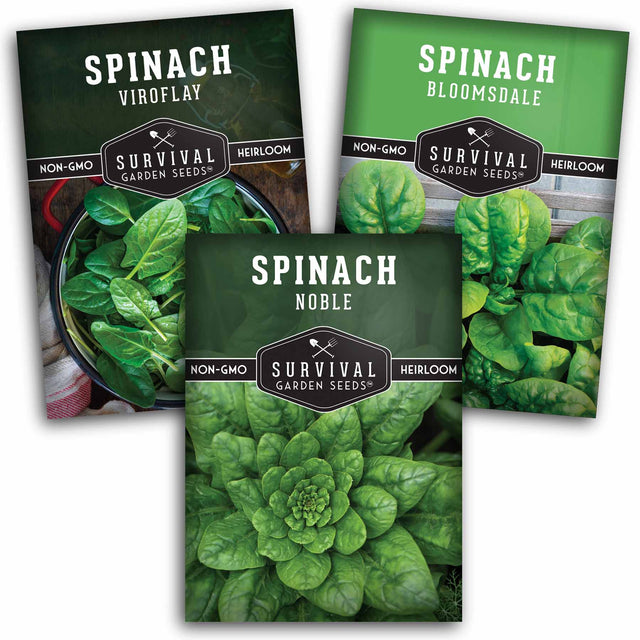Spinach Seed Collection – 3 Heirloom Non-GMO Varieties: Viroflay, Giant Noble & Bloomsdale for Spring and Fall Gardens
Heirloom - Non-GMO - Reliable Germination
Spinach Seed Collection – 3 Heirloom Non-GMO Varieties: Viroflay, Giant Noble & Bloomsdale for Spring and Fall Gardens is backordered and will ship as soon as it is back in stock.
Couldn't load pickup availability
Grow fresh, nutrient-rich greens all season with the Spinach Seed Collection, featuring three classic heirloom non-GMO varieties: Viroflay, Giant Noble, and Bloomsdale. These reliable open-pollinated spinaches thrive in cool weather, providing continuous harvests for salads, cooking, and preserving. Fast to germinate and simple to grow, this diverse trio delivers tender baby spinach leaves or full, hearty bunches depending on how you plant and harvest.
Three Time-Tested Heirloom Varieties:
- Viroflay – A French heirloom with smooth, broad leaves up to 12 inches long. Excellent for early spring sowing and quick baby spinach harvests.
- Bloomsdale – The classic savoy spinach with crinkled, glossy leaves and superior cold tolerance, ideal for fall and overwintering crops.
- Giant Noble – A broadleaf variety that produces large, tender leaves perfect for cooking, canning, or freezing.
Versatile for Indoor or Outdoor Growing:
Spinach is a cool-season crop that adapts to many growing setups—traditional garden beds, raised planters, patio containers, or indoor hydroponic systems. Sow thickly for baby spinach or space plants out for mature heads. Continuous succession planting ensures a steady supply of fresh greens for the kitchen.
Cold-Hardy and Reliable:
These heirlooms thrive across USDA Zones 3–9 and perform best in temperatures between 45–70°F. Bloomsdale and Noble are especially resilient to frost, allowing extended harvests in late fall or early spring.
Planting & Growing Instructions:
- When to Sow: Early spring and late summer for fall crops
- Soil Temp: 45–70°F
- Depth: ½ inch deep
- Spacing: Thin to 2–4 inches apart, rows 12–18 inches apart
- Light: Full sun to partial shade
- Care: Keep soil evenly moist and mulch lightly
- Germination: 7–14 days
- Harvest: Baby leaves in 25–30 days; mature bunches in 40–55 days
For best fall flavor, harvest after a light frost. Each packet includes clear guidance on planting, succession sowing, and seed saving.
Why Gardeners Love the Spinach Seed Collection:
- Three proven heirloom varieties for extended harvests
- Works in gardens, containers, or hydroponic systems
- Non-GMO, open-pollinated, and untreated seeds
- Excellent cold hardiness and fast germination
- Provides baby spinach or large, tender leaves for versatile use
Heirloom Garden Seeds
All of our seeds are open-pollinated, non-GMO, heirloom varieties with tested germination rates
Payment & Security
Payment methods
Your payment information is processed securely. We do not store credit card details nor have access to your credit card information.
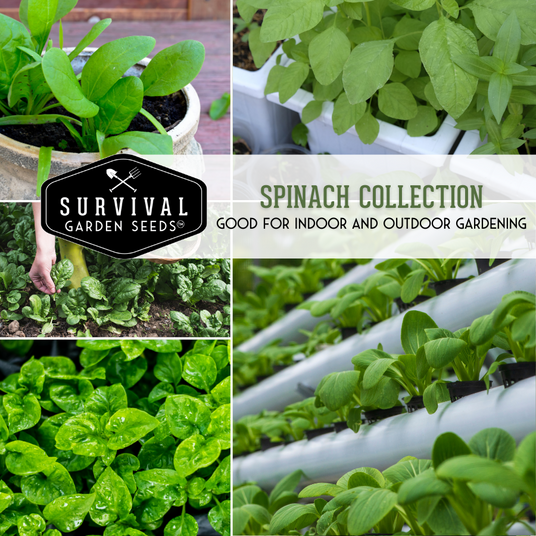
Spinach Packed with Flavor
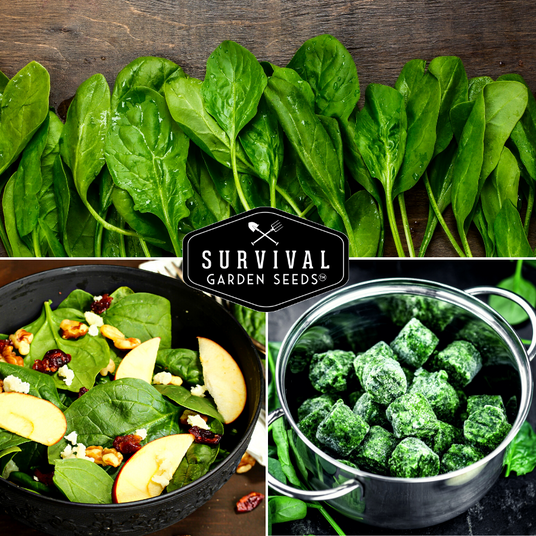
Plant Spring or Fall
Why Choose Survival Garden Seeds
At Survival Garden Seeds, we believe in preparing today for tomorrow’s peace of mind. That’s why we offer only heirloom, non-GMO, and untreated seeds you can trust to nourish your family and support a sustainable lifestyle. As a family-owned American company, we’re committed to providing seeds that grow strong and true—helping you cultivate health, resilience, and beauty in your garden.
Frequently Asked Questions
Are your seeds heirloom and open-pollinated?
Are your seeds heirloom and open-pollinated?
Yes. All of our seeds are heirloom, open-pollinated varieties, which means they can produce seeds that grow true to type and are suitable for seed saving.
You can learn more about open-pollinated, heirloom, and non-GMO seeds in our Survival Garden Training blog.
Are your seeds non-GMO?
Are your seeds non-GMO?
Yes. All Survival Garden Seeds are 100% non-GMO. Our seeds are open-pollinated heirloom varieties and are never genetically modified.
Are your seeds treated with chemicals?
Are your seeds treated with chemicals?
No. Our seeds are completely untreated and free from chemical coatings, fungicides, or synthetic treatments.
How do I know my seeds are fresh?
How do I know my seeds are fresh?
Every seed packet includes a packed-for date, and we germination-test each seed lot before packaging to ensure high viability.
What is the shelf life of your seeds?
What is the shelf life of your seeds?
Most seeds remain viable for 3 to 5 years or longer when stored properly in a cool, dry place away from light and moisture.
In what USDA hardiness zones can I grow your seeds?
In what USDA hardiness zones can I grow your seeds?
Our varieties are selected to grow successfully across USDA Hardiness Zones 3 through 10. Each packet includes variety-specific planting guidance and germination tips.

